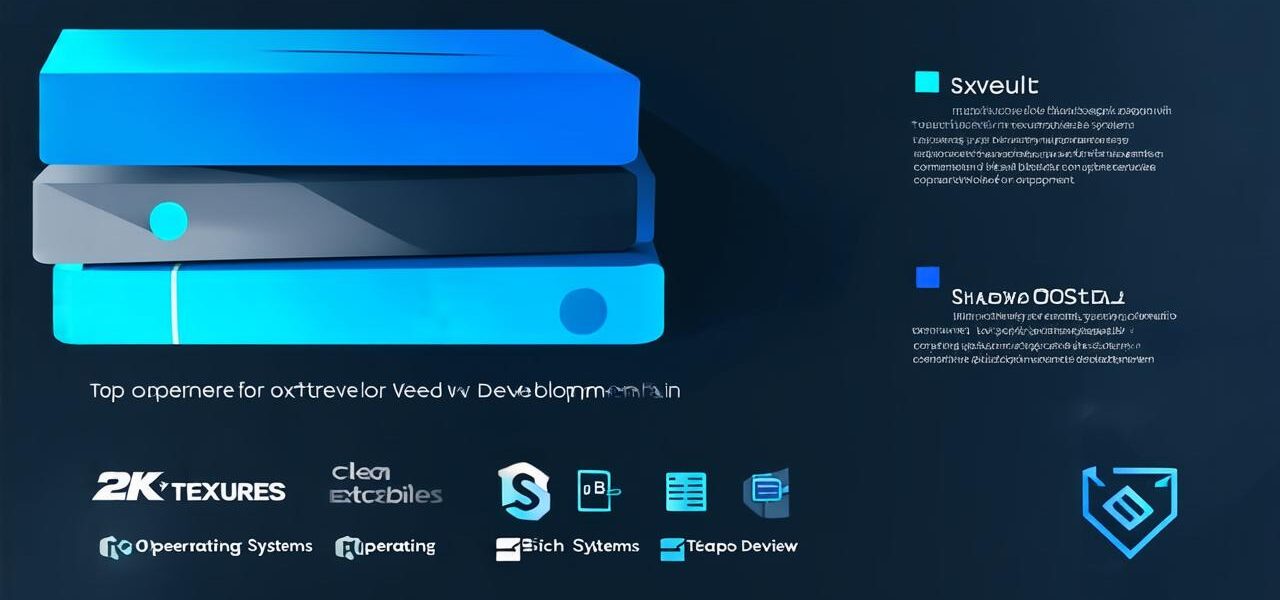
Top Operating Systems for Blockchain Development: A Comparative Overview
As blockchain technology continues to evolve and gain traction in various industries, the demand for skilled blockchain developers is on the rise. These professionals are responsible for designing, building, and maintaining blockchain-based applications, which require specialized skills and knowledge.
Ethereum OS: The Most Popular Choice for Blockchain Development
Ethereum OS is by far the most popular choice for blockchain development. This is due in part to its flexibility, scalability, and ease of use. Ethereum OS offers a range of tools and frameworks that make it easy for developers to build and deploy smart contracts and decentralized applications (DApps) on the Ethereum blockchain.
Some of the popular Ethereum development tools include Truffle, Ganache, Remix, and MetaMask.
One of the key benefits of using Ethereum OS for blockchain development is its ability to support a wide range of programming languages, including Solidity (Ethereum’s native language), Java, C++, Python, and more. This makes it easy for developers with different skill sets to contribute to Ethereum-based projects.
Additionally, Ethereum OS offers built-in support for smart contracts, which are self-executing programs that enable secure and transparent transactions on the blockchain.
Another advantage of using Ethereum OS for blockchain development is its large and active developer community. This community provides a wealth of resources, including documentation, tutorials, forums, and meetups, that help developers to learn and stay up-to-date with the latest developments in Ethereum technology.

Cons of Ethereum OS
Despite its many benefits, Ethereum OS also has its drawbacks. One of the biggest challenges is its high gas fees, which are the costs associated with executing transactions on the Ethereum blockchain.
Another downside of Ethereum OS is its lack of privacy features, which can be a concern for some developers and users. Ethereum is an open blockchain, which means that all transactions are visible to anyone who wants to see them. This can make it difficult to build applications that require confidentiality or anonymity.
Hyperledger OS: A Popular Choice for Enterprise Blockchain Development
Hyperledger OS is another popular choice for blockchain development, particularly in the enterprise space. Hyperledger OS is an open-source platform that enables organizations to build and deploy custom blockchain solutions that meet their specific needs.
Some of the key features of Hyperledger OS include modular architecture, plug-in frameworks, and support for multiple consensus mechanisms.
One of the biggest advantages of using Hyperledger OS for enterprise blockchain development is its ability to provide privacy and confidentiality. Hyperledger OS offers several privacy features, including encrypted communication channels, identity management, and access control. These features make it easy for organizations to build secure and private blockchain applications that meet their compliance requirements.
Another advantage of using Hyperledger OS for enterprise blockchain development is its scalability and flexibility. Hyperledger OS can be customized to meet the specific needs of different organizations, including support for multiple consensus mechanisms, smart contract languages, and programming frameworks. This makes it easy for organizations to build scalable and efficient blockchain solutions that meet their business requirements.
Cons of Hyperledger OS
Despite its many benefits, Hyperledger OS also has its drawbacks. One of the biggest challenges is its complexity, which can make it difficult for developers to learn and use the platform. Hyperledger OS has a steep learning curve, which requires developers to have a strong understanding of blockchain technology and programming concepts.
Another downside of Hyperledger OS is its lack of interoperability with other blockchain platforms, which can make it difficult for organizations to build cross-platform applications. Hyperledger OS is primarily designed for enterprise use cases, which may not be compatible with other public blockchains like Ethereum or Bitcoin.
Tron OS: A Popular Choice for Decentralized Application Development
Tron OS is a popular choice for decentralized application (DApp) development on the Tron blockchain. Tron OS offers a range of tools and frameworks that make it easy for developers to build and deploy DApps on the Tron network, including Truffle, Remix, and MetaMask.
One of the key benefits of using Tron OS for decentralized application development is its scalability and speed. Tron OS offers a fast and efficient blockchain network that can process transactions quickly and securely, making it ideal for building high-performance DApps.
Additionally, Tron OS offers built-in support for smart contracts, which enables developers to build secure and transparent applications on the blockchain.
Another advantage of using Tron OS for decentralized application development is its large and active developer community. Tron OS has a vibrant ecosystem that provides developers with a wealth of resources, including documentation, tutorials, forums, and meetups, which help them to learn and stay up-to-date with the latest developments in Tron technology.
Cons of Tron OS
Despite its many benefits, Tron OS also has its drawbacks. One of the biggest challenges is its lack of privacy features, which can be a concern for some developers and users. Tron OS is an open blockchain, which means that all transactions are visible to anyone who wants to see them. This can make it difficult to build applications that require confidentiality or anonymity.
Another downside of Tron OS is its limited scalability compared to other blockchain platforms like Ethereum. While Tron OS offers fast and efficient transaction processing, it may not be able to handle the same volume of transactions as more mature blockchains like Ethereum.
Summary
In conclusion, choosing the right operating system for blockchain development is critical to the success of any project. Each of the three operating systems discussed in this article has its own set of advantages and disadvantages, making it important to carefully evaluate your specific needs and requirements before making a decision. Ethereum OS is a popular choice for blockchain development due to its flexibility, scalability, and ease of use. Hyperledger OS is a popular choice for enterprise blockchain development due to its privacy features and scalability. Tron OS is a popular choice for decentralized application development due to its speed and efficiency.
Ultimately, the best operating system for blockchain development will depend on your specific goals, budget, and technical expertise. By carefully evaluating your options and choosing the right platform for your needs, you can build a successful blockchain solution that meets your business requirements.



